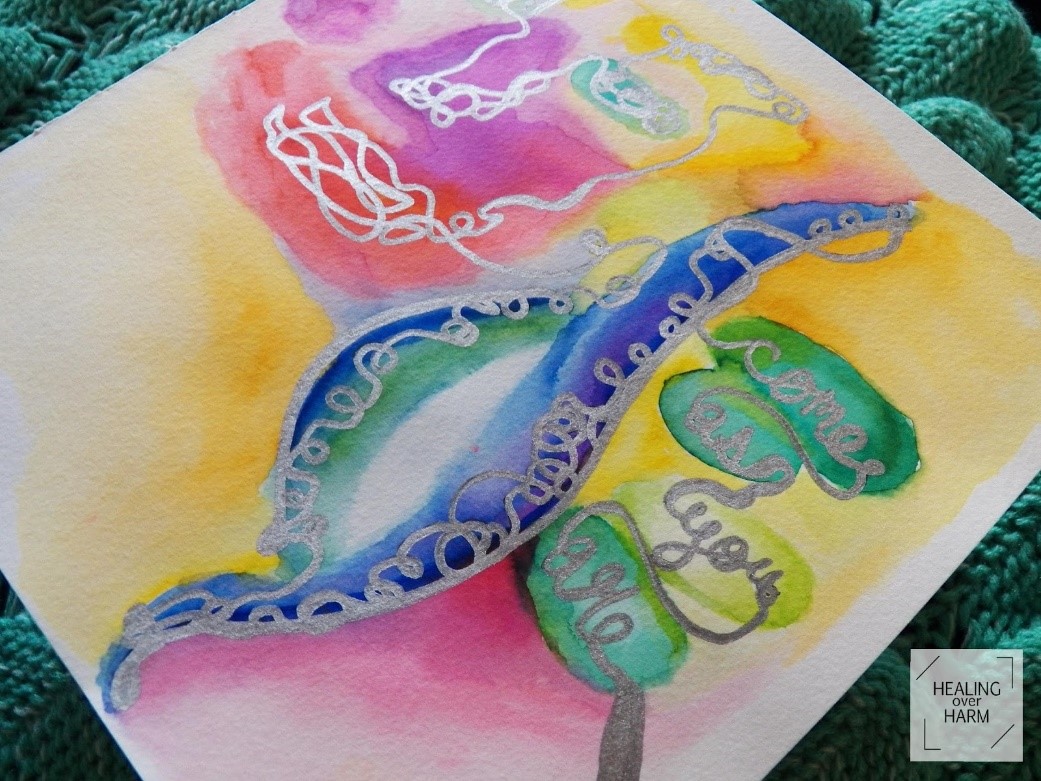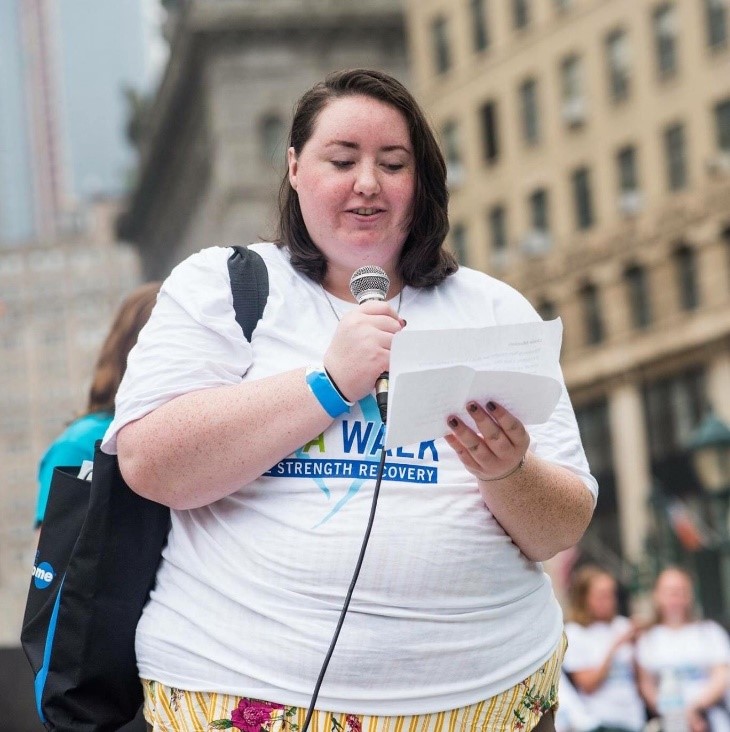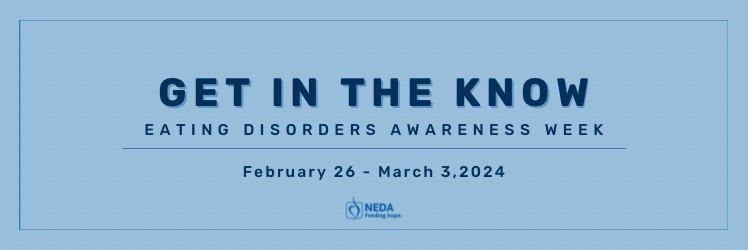As someone who found community and healing through documenting my mental health recovery on social media, the question I’ve taught myself to come back to in advocacy work is, “Is this all I can do to help the cause, or can I do something more?”
One of the most rewarding things I’ve discovered in life is to meet myself where I am and own that. I used to struggle a lot with comparing my chapter 2 to someone else’s chapter 8, and wishing my life hasn’t taken so many detours or hit dead-ends that left me feeling stuck. It’s easier said than done to not compare, but it’s freeing to live just as you are and not push yourself to do x y and z just because someone else your age already accomplished that; it’s about the journey, not the destination, after all. So, come as you are.
Through personal experience, I’ve noticed it’s easy for some to underestimate the healing spaces such as the mental health community can bring. On the other hand, it’s easy to zone in on “social media is everything,” or assume we don’t have the ability to influence positive change in the fight against eating disorders.
While I’ve helped and inspired people in my small corner of the Internet, and I value the healing I’ve brought to their lives as I’ve healed myself, I’ve come to realize social media alone doesn’t fulfill me in the same ways anymore. It’s very complex, of course, and varies person to person; my journey isn’t going to be the same as yours.
However, I do think if you’re in a place where you feel you can use your voice to support the cause, it could be helpful to consider, “Is this all I can do to help the cause, or can I do something more?”
That question alone can evoke judgment or guilt but truly, I’d like you to ask yourself that from a compassionate and non-judgmental stance. This isn’t about feeling like we’re not doing enough; this is about realizing we have the power and strength to have positive impacts.
Perhaps your advocacy looks different than mine. Perhaps you don’t feel ready to go different routes. Perhaps it feels like too much. That’s all ok.
While I left social media at the start of this year and am returning to social media with different intentions, I’ll continue supporting the causes I feel honored to be a part of and continue sharing uplifting stories that I appreciate you trusting me with. I’m going back to my roots.
I don’t think it’s “wrong” that my journey through advocacy has grown and changed over time. I think it’s normal because, while the focus of my work is shifting a bit, my healing has progressed. I started out in a broken, vulnerable head space. I’m doing better now. I wouldn’t change any part of my story because finding community and seeing I wasn’t alone was instrumental in my healing.
While our online communities without a doubt can create positive impacts in our recoveries, the fight against eating disorders and the fight for proper assessment and treatment for those suffering goes beyond sharing our stories via the web.
I also believe it’s so valid to think, “I’m one person, one voice — how could I possibly make a difference?”
Well, look at the impact our community has already had. Think of the times you’ve shared your story with someone and they felt inspired by you. Think of all the people you’ve inspired who’ve maybe never mustered up the courage to share it with you. Look at how NEDA Walks have grown over the past couple years alone. And how more people are seeking help for themselves. And loved ones are being educated about the warning signs, so they can intervene and offer resources. And how we are normalizing how valuable taking good care of our mental health is.
We can make a difference because we have done so before.
I invite you to take the next step with me. This week, for National Eating Disorder Awareness Week, NEDA is encouraging us to support the LIVE Well Act, legislation that “demonstrates that weight-inclusive programs, which reject an emphasis on weight and focus, instead, on health being multifaceted, improve the health of individuals with and without eating disorders.”
The LIVE Well Act’s approach to well-being “emphasizes health for all people across the weight spectrum and prioritizes the elimination of weight stigma. Additionally, the LIVE Well Act will focus on long-term health practices and protect those with or at risk for eating disorders.”
The LIVE Well Act is for us.
Supporting this legislation could mean those suffering with eating disorders will one day not be turned away, mistreated or not taken seriously when taking the brave step to seek help.
Eating disorders are first and foremost mental illnesses. The LIVE Well Act echoes this sentiment.
We deserve proper care for eating disorders. I want to live in a world where “am I sick enough to get help?” is no longer a question that keeps anyone silent.
For NEDAwareness Week this year, come as you are.
In your recovery, come as you are.
In your advocacy work, come as you are.
In your healing, come as you are.

It took time and patience, trial and error, struggle and triumph, for me to be in the advocacy role I’m in today.
It’s ok if your first step is asking your Member of Congress to support the LIVE Well Act. It’s ok if your first step is letting someone in and asking for help. It’s ok if your first step is signing up for a support group.
Whatever your first step is, meet yourself where you are and know that your first step into recovery, advocacy, activism, supporting the cause as a loved one of someone who struggles, or whatever it may be is enough. Come as you are.
Lexie Manion is a mental health advocate and creator of the #BoycottTheBefore movement. Writing and creating art have been instrumental in her healing and finding her voice. You can connect with Lexie on Instagram or Twitter at @healingoverharm.
Author image by Colin Coleman Photography.






